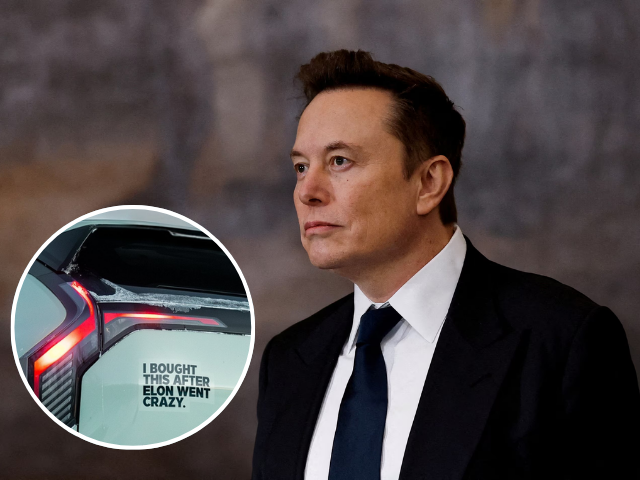Chris Wright, President-elect Donald Trump’s pick to lead the Department of Energy, pledged to make keeping the nation’s lights on his No. 1 priority during his Senate Energy and Natural Resources Committee confirmation hearing on Wednesday.
Americans are facing mounting blackouts as an aging grid heaves under the pressures of extreme weather and surging demand — and the problem is set to get worse in the next 10 years.
The number of hours Americans spend cut off from the power grid nearly doubled over the past decade, according to federal data.
Over the next decade, roughly half of North America — Canada’s grid is largely integrated with that of the United States — is at risk of electricity shortages as demand for power grows for the first time in more than 20 years to quench the energy thirst driven by electrification, air conditioning needs and data centers, according to a warning in December from the North American Electric Reliability Corporation, the quasi-governmental nonprofit that tracks the stability of the continent’s grid reliability.
“We’ve had roughly a 100-year history in the United States of making electricity more affordable on inflation-adjusted terms and our grid more reliable, one of the engineering marvels of modern times,” said Wright, who planned to celebrate his 60th birthday after the hearing. “We’ve seen that trend reverse, and in the last few years, we’ve seen electricity prices go up and the reliability of the grid go down.”
In response to a question about modernizing the U.S. nuclear arsenal — stewardship of which, despite the agency’s name, is among the Energy Department’s top tasks — Wright ranked restoring the country’s infrastructure for managing and working on atomic weapons alongside fixing “coming instabilities in our electrical grid” as “my single biggest concern in this job.”
Throughout the hearing, protesters repeatedly interrupted the proceedings, shouting about the wildfires engulfing Los Angeles in an attempt to highlight Wright’s role in the American drilling boom that turned the country into one of the world’s top producers and exporters of oil and gas, two of the main fossil fuels driving up global temperatures by adding heat-trapping pollution to the atmosphere.
In 2011, Wright founded Liberty Energy, the Denver-based oil and gas company that has worked primarily in hydraulic fracturing, the drilling technique known as fracking that blasts bedrock with chemical-laced water to draw out hydrocarbon reserves that would be inaccessible for traditional rigs.
During a friendly introduction at the start of the hearing, Sen. John Hickenlooper (D-Colo.) noted that, despite Wright’s “enthusiasm for fossil fuels,” the veteran executive supports zero-carbon sources of energy. Wright also repeatedly cited his college-era focus on studying nuclear fusion, the so-called holy grail of clean energy, and the early phase of his career spent working on solar panels.
He described Liberty as a diversified energy company that uses renewable energy and batteries, and brought up on several occasions the potential for fracking technology to harness the Earth’s molten heat to make clean electricity, a nascent sector known as geothermal. After Liberty invested in the nuclear startup Oklo, Wright took a position on the board of directors of the California-based developer, which is designing tiny next-generation reactors.
“Do I wish we could make faster progress? Absolutely. Are there things we can do … through the Department of Energy to accelerate development of new energy technologies that are really the only pathway to address climate change? Absolutely.”
– Chris Wright, Trump’s nominee for secretary of energy
Last year, Wright posted a video online in which he said, “There is no climate crisis” and insisted that “we’re not in the midst of an energy transition.”
Citing atmospheric data in a company report he authored as Liberty’s chief executive last year, Wright acknowledged that “climate change is significant,” but warned that “prioritizing” the issue over supplying affordable, reliable energy risks inflaming what he called the more urgent crises of malnutrition, disease and air pollution.
However, Wright took a different tack at the hearing, calling climate change “a real issue.”
“It’s a challenging issue,” he said. “The solution to climate change is to evolve our energy system. I’ve worked on that most of my career, again, in nuclear and solar and geothermal, and new battery storage technology now.”
“Do I wish we could make faster progress? Absolutely,” he added. “Are there things we can do … through the Department of Energy to accelerate development of new energy technologies that are really the only pathway to address climate change? Absolutely.”
Still, Wright pointed out that, in the six decades since he was born, hydrocarbons — the category of fossil fuels that includes both oil and gas but not solid coal — have retained their roughly 80% share of global energy use over the past century even as zero-carbon alternatives took on an ever-larger share of growing demand.
“Global demand for energy has grown a lot,” Wright said. “We brought a lot of new energy technologies along, thankfully, or we wouldn’t have as much energy as we have today. But it’s proven very hard to displace hydrocarbons in the global energy system.”

Trump promised to ramp up exports of liquefied natural gas, the version of the fuel superchilled to liquid form for easier transportation by tanker ships. The U.S. is set to nearly double its capacity for exports in the next five years. The Biden administration issued a pause last year on federal permits for new facilities while the Energy Department completed a study into the economic and environmental effects of the export boom. A federal court blocked the pause, and the Biden administration started issuing permits again in September.
When the Energy Department released its study last month, the results concluded that growing exports threatened a dangerous increase in emissions and a spike in domestic prices, prompting a trade association representing industrial energy users to call on Congress to act on the findings. The research is now subject to a 60-day comment period.
Wright appeared to question the conclusion, noting that gas production grew to meet demand as exports increased.
“As we’ve grown our natural gas exports, our price of natural gas has gone down because the … production industry is better,” he said.
The Biden administration made the Energy Department’s Loan Programs Office the spear tip of its decarbonization plan, pumping billions of dollars into companies across the country manufacturing solar panels, batteries and carbon-capture equipment.
In December, however, the agency’s inspector general issued a report citing conflicts of interest within the office run by star solar entrepreneur Jigar Shah. But the outgoing administration has in recent months ramped up deals from the Loan Programs Office to make sure more money from Biden’s landmark climate investment law, the Inflation Reduction Act, goes out before Republicans who vowed to slash spending take back control of Congress and the White House.
Asked whether he would halt all lending from the office if confirmed, Wright declined to commit, answering ambiguously that he would “immediately engage in that issue.”
He was less vague about his support for most renewables, which Trump has criticized. Trump vowed to end construction on the troubled offshore wind projects off the coast of the U.S. Northeast.
Asked by Sen. Catherine Cortez-Masto (D-Nev.) what energy sources he expected to meet the nation’s growing demand for electricity, Wright listed oil, natural gas, coal, nuclear and hydroelectricity as top sources today. He said wind and solar were “growing rapidly” and cheered the potential for geothermal “to become a meaningful source of energy in the future.”
We Won’t Back Down
Support HuffPost
Already contributed? Log in to hide these messages.
“You did not mention solar,” Cortez-Masto said, appearing not to hear his previous remark. “Solar is the No. 1 energy for us in Nevada. It’s created jobs. It’s growing our economy.”
“If I didn’t say solar, it was oversight,” Wright said. “I worked in solar. You have tremendous resources for that in Nevada, and we’re seeing a lot of growth in solar energy. I expect that to continue.”
















